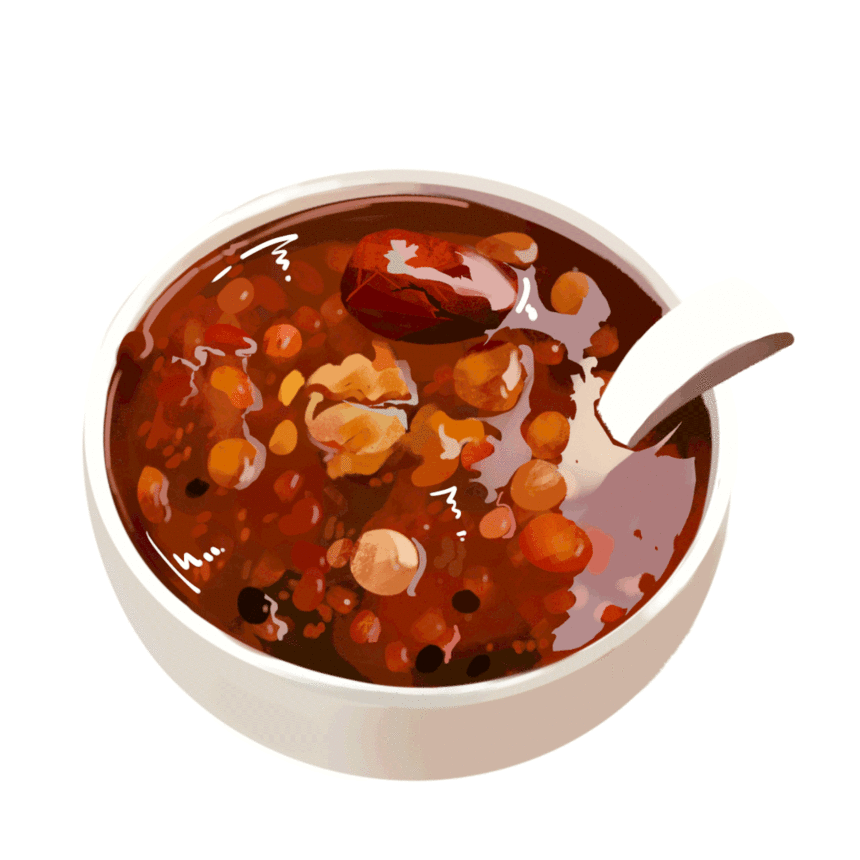Our Blog
|
Mandarin Go | Chinese Culture-Laba Festival(腊八节 Làbā jié)Laba Festival(腊八节 Làbā jié)Part 01 The origin of Laba Festival 腊八节的起源
Chinese people believe that eating congee during Laba festival will bring good luck. Laba Congee is infused with Chinese people’s beautiful expectations of a happy life. 中国人相信腊八节喝腊八粥会带来好运,腊八粥充满着中国人民对幸福生活的美丽期望。 Laba is celebrated on the eighth day of the last lunar month, referring to the traditional start of celebrations for the Chinese New Year. 'La' (腊)in Chinese means the 12th lunar month and 'ba' (八)means eight. 腊八是农历十二月的第八天,是欢庆春节的开始。汉语里,“腊”的意思是第十二个月,“八”的意思是八。 关于这个节日的起源有很多种说法。有一种说法是大约3000年前,一种祭祀仪式叫做“腊”,会在农历十二月举行。人们向天上和地下的神献出他们的猎物。那时候,表示猎物的汉字“猎”和表示农历十二月的“腊”是可以通用的。从那时候起,“腊”就用来指这两种意思了。因为这个节日是在最后一个月的第八天举行的,后来人们就加上了“八”,于是就有了现在的腊八。 Part 02 The legend of Laba Festival 腊八节的传说 释迦牟尼在去深山求得理解和教化的路上又饿又累。由于连日走得精疲力竭,他在印度的一条河边不省人事。一个牧羊女发现了她,把自己的午餐——用豆子和大米做的粥——给他吃了。释迦牟尼因此得以继续他的旅程。 After six years of strict discipline, he finally realized his dream of full enlightenment on the eighth day of the twelfth lunar month. Ever since, monk shave prepared rice porridge on the eve and held a ceremony the following day , during which they chant sutras and offer porridge to Buddha. Thus, the tradition of eating Labaporridge was based in religion, though with the passing of time the food itself became a popular winter dish especially in cold northern China. 经过六年严格的修行之后,他终于在农历十二月初八悟到了自己充满启示的梦。从那时起,僧人们就要在腊八前夜准备米粥,在第二天举行一个仪式,他们要唱着佛经献粥给佛祖。因此,吃腊八粥的传统其实是源于宗教的,虽然随着时间的流逝,这种食物本身就成了冬日的一道美食,尤其在寒冷的中国北方。 Part 03 Laba Festival customs 腊八节的习俗 1. LABA PORRIDGE 腊八粥(làbā zhōu) The laba porridge is not only a yummy traditional rite in China to mark the laba festival but also a delicacy (美味)good for health. 腊八节喝腊八粥是中国传统习俗,腊八粥不仅好喝,对身体也十分有益。 2. LABA GARLIC 腊八蒜(làbā suàn) ln North China there is a custom of pickling garlic(浸泡大蒜) in vinegar on Laba Day. After some pickling, the garlic will turn green. This pickled garlic goes very well with dumplings. In Chinese, the words “garlic” and "calculate” have the similar pronunciation; therefore, eating garlic on Laba Day is symbolic of reckoning the year's income and expenses as year-end approaches. 在中国北方,腊八节有腌制大蒜(浸泡大蒜)的习俗。经过腌制,大蒜会变绿。腌蒜和饺子很配。在汉语中,“大蒜”和“计算”发音相似;因此,腊八节吃大蒜象征着年底将至,对今年的收入和支出进行清算(计算)。 3. LABA NOODLES 腊八面(làbā miàn) Because northerners like foods made from wheat flour, they eat Laba noodles on Laba day. 因为北方人喜欢吃小麦面粉做的食物,所以在腊八节那天他们吃腊八面。 4. EATING ICE 吃冰 Northerners have a custom of leaving a basin of water outside the house to be frozen ; they break this ice into pieces and eat it on Laba Day. The ice on this day is said to possess supernatural power, capable of keeping those who eat it free from stomachache for a whole year. 北方人有一个习俗,他们在房子外面放一盆水等水冻成冰,在腊八节那天把冰捣碎并把它吃掉。据说,这天的冰拥有超自然的力量,它能让吃了的人一整年都不会肚子疼。 |






